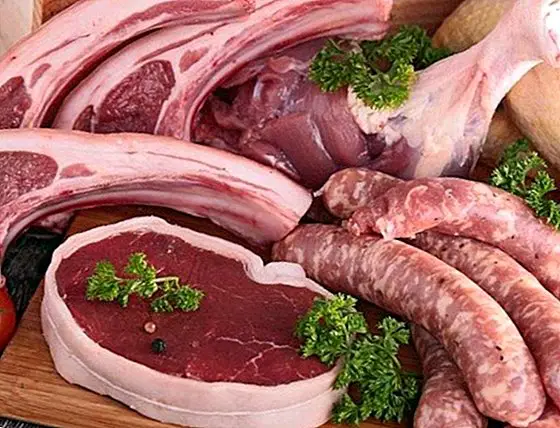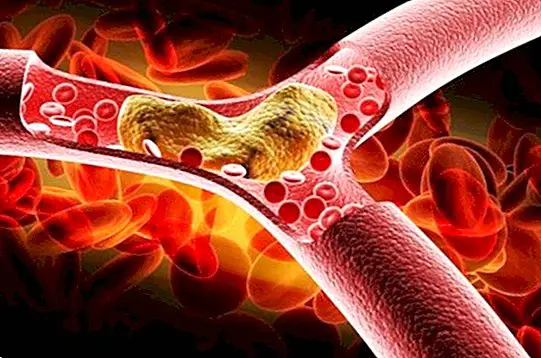The whole truth about the effects of meat on health
It was in the month of October 2015 when the debate on the consumption of processed meat and the risk of cancer began in practically the whole world, after the International Agency for Research on Cancer (IARC, dependent on the World Health Organization). Health), included in Group 1 (higher risk of getting cancer) the excessive consumption of processed meats, among which we find sausages and cold meats.
In fact, to this same category also belong other compounds or substances known for their high carcinogenicity, as for example is the case of asbestos or of tobacco. Although, yes, experts clarified that "does not mean they are equally dangerous." 
Equally, IARC experts included in Group 2A as "probably carcinogenic" the excessive consumption of red meats, among which are beef, pork and sheep.
In spite of this, the current society in which we live is increasing the consumption of meat, which increases considerably due to a greater accessibility and increased purchasing power of many citizens.
In fact, as many nutritionists say, we are seeing how the population tends to consume a greater amount of protein-rich foods, to the detriment of starches such as rice or pasta (especially in its integral variants).
Although many of those who defend the consumption of meat advocate the history of human evolution, arguing that "not only with vegetables and vegetables did man reach our days", the fact is that today the number is increasing of scientific studies that confirm -and warn- about eating meat would not be as beneficial or innocuous as you think.
One example is what happens with the scientific assessment that IARC conducted last year, which conducted a large meta-analysis in which they reviewed more than 700 investigations that would support their conclusions, among which we would find 400 epidemiological studies, of which 300 They would point out that red meat could actually produce some type of cancer.
Moreover, it is estimated that a consumption of only 40 grams per day of sausages increases the risk of heart problems and cancer. 
These are the effects of the consumption of meat in your body and your health
Damage to DNA
Processed meats, as in the case of cold meats or sausages, contain nitrates or nitrogenous salts, which are - in fact - the most toxic substances that have this type of food.
Nitrates are capable of transforming into nitrosamines when found in the human organism, considered as one of the most carcinogenic substances that exist, by causing damage to the DNA (in the nucleus of the cell itself).
More presence of toxic substances
But processed and red meats do not just contain nitrates. In fact, It is estimated that a piece of meat contains more than 900 toxic substances. For example, the use of antibiotics, vaccines and hormones in livestock is extremely common in the United States. It is also common to consume heavy metals from water and the environment.
All this accumulates for years in the adipose (fat) tissues of the animal. And what happens when we consume meat contaminated with this type of substances? Very simple (and alarming): these substances begin to degrade and in turn produce many more toxic substances.
Among these substances we can mention the presence of cadaverine, skatole or indole. Although they already exist in the flesh, when they enter our organism they tend to multiply as a consequence of the action of the different bacteria in our digestive tract.
Increased risk of cancer
It is considered that there are three types of cancer directly related to the consumption of meat and processed meats: cancer of the colon and rectum, the prostate and the pancreas. 
In the case of, for example, colorectal cancer (colon and rectum), the association between this disease and the consumption of red meat is overwhelming.
Produces a dysbiosis effect and ages us faster
When we consume meat, a imbalance in the concentration of intestinal bacteria which may contribute to the development or worsening of a wide variety of chronic and / or degenerative diseases, especially intestinal diseases.
In other words, the meat affects in a very negative way the good bacterial flora that helps our organism stay healthy. As a result, the self-regulation of the body is altered through the bacteria it has for the production of essential substances, such as vitamin K.
Increase the risk of cardiovascular diseases
In addition to the increased risk of cancer, it has also been observed that excessive consumption of red meat also increases the risk of cardiovascular disease, as is the case, for example, with hypertension, arteriosclerosis and fat metabolism disorder.
On the other hand, not only increases the levels of cholesterol and triglycerides, but also uric acid, which in high amounts causes disabling pain in the joints and gout (inflammation of one or several joints as a result of crystallization and the accumulation of this compound). 
And what happens with an unusual or excessive consumption?
As the researchers themselves also show, a low but not null consumption of meat can be beneficial for health. That is, avoiding the consumption of processed meat (such as sausages), and opting only for red meat in a timely manner and white meat more regularly.
This is because, from a nutritional point of view, meat is an important source of protein, iron, essential fatty acids and vitamins of group B. This article is published for informational purposes only. You can not and should not replace the consultation with a Nutritionist. We advise you to consult your trusted Nutritionist. ThemesMeat


